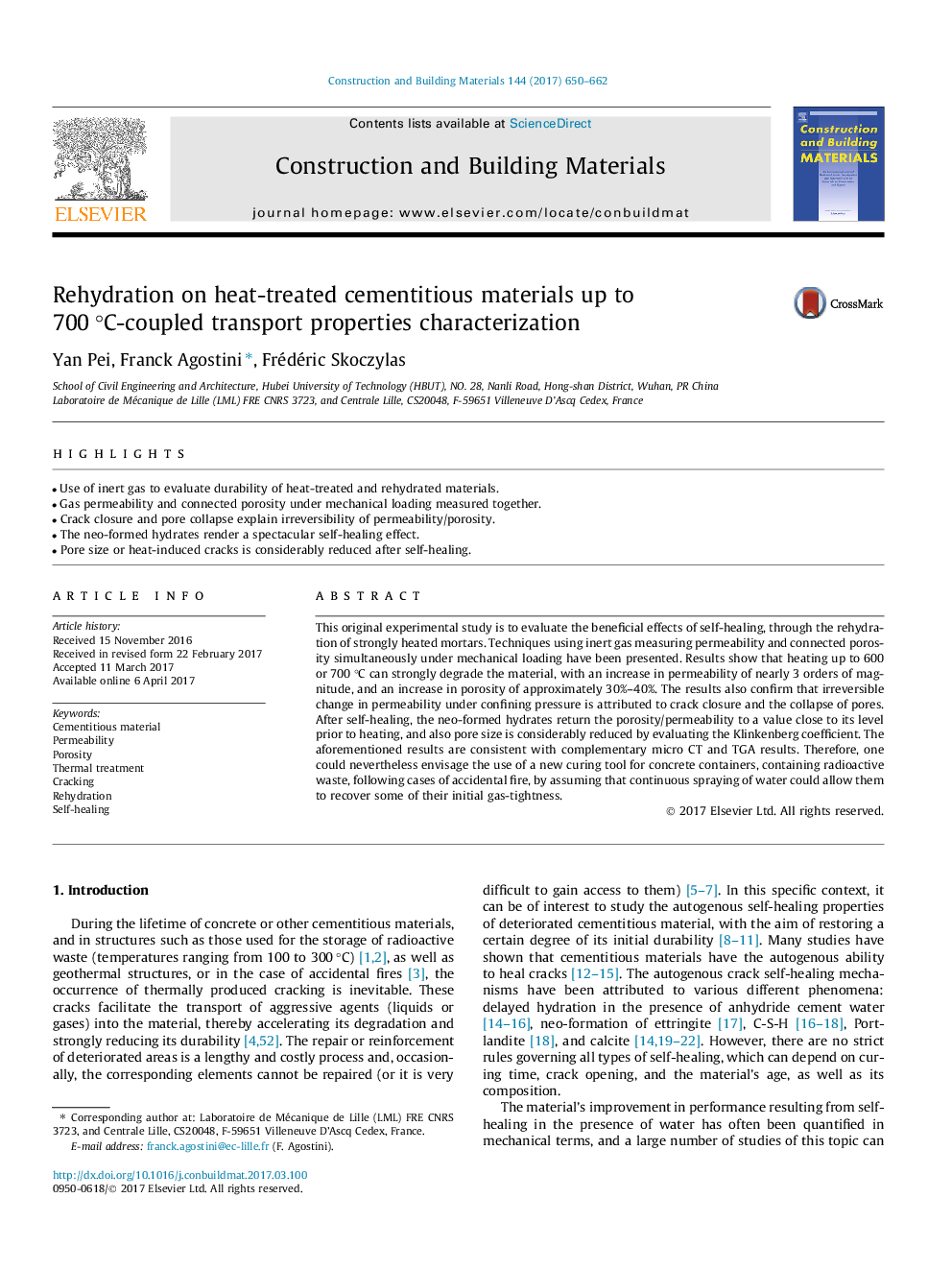| Article ID | Journal | Published Year | Pages | File Type |
|---|---|---|---|---|
| 4913200 | Construction and Building Materials | 2017 | 13 Pages |
Abstract
This original experimental study is to evaluate the beneficial effects of self-healing, through the rehydration of strongly heated mortars. Techniques using inert gas measuring permeability and connected porosity simultaneously under mechanical loading have been presented. Results show that heating up to 600 or 700 °C can strongly degrade the material, with an increase in permeability of nearly 3 orders of magnitude, and an increase in porosity of approximately 30%-40%. The results also confirm that irreversible change in permeability under confining pressure is attributed to crack closure and the collapse of pores. After self-healing, the neo-formed hydrates return the porosity/permeability to a value close to its level prior to heating, and also pore size is considerably reduced by evaluating the Klinkenberg coefficient. The aforementioned results are consistent with complementary micro CT and TGA results. Therefore, one could nevertheless envisage the use of a new curing tool for concrete containers, containing radioactive waste, following cases of accidental fire, by assuming that continuous spraying of water could allow them to recover some of their initial gas-tightness.
Related Topics
Physical Sciences and Engineering
Engineering
Civil and Structural Engineering
Authors
Yan Pei, Franck Agostini, Frédéric Skoczylas,
